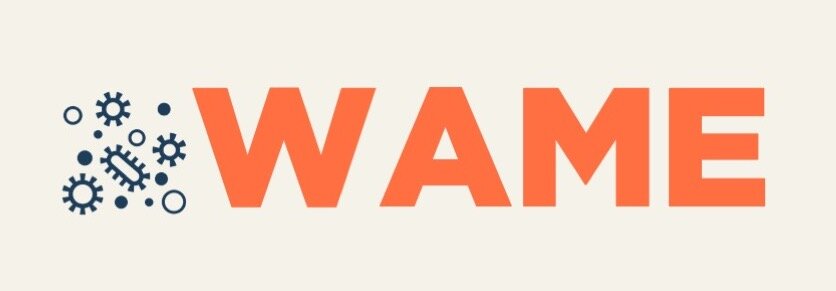WAME aims to fill fundamental gaps that exist in our understanding of the role that the microbiome plays in the evolution of its host.
Background & motivation
All animals harbour microbes, and these diverse and complex communities (the microbiome) have profound and pervasive effects on host biology. Host-microbiome interactions can affect host fitness, through obligatory relationships that govern co-evolutionary responses, or through facultative relationships that shape specific host responses to local environmental conditions. Thus, there is huge potential for host-microbiome interactions to modulate host phenotypes and adaptive responses.
Much of our existing knowledge on the importance of the microbiome comes from laboratory systems; therefore our understanding of the ecological and evolutionary significance of host-microbiome interactions in wild systems is very limited. Studies of naturally-acquired microbiomes in the wild, where hosts are exposed to complex environmental variation and where selection acts to determine fitness, are crucial to understanding the evolutionary significance of the microbiome.
Many key questions exist surrounding the impact of these communities on host fitness phenotypes. Answering such questions is difficult, due to system-specific dynamics, logistical sampling difficulties, and still-developing statistical approaches to maximise inference from complex data structures. WAME aims to serve as a forum to help identify, discuss and resolve such difficulties and, importantly, learn from cross system similarities and differences.
Timely questions
How is the microbiome acquired (i.e. relative importance of horizontal and vertical transmission)?
Which ecological and evolutionary factors determine the stability and resilience of the microbiome once acquired
What are the drivers of intra-individual variation in the microbiome?
Do microbiome composition and dynamics predict host health and fitness?
Are microbiome dynamics linked to host senescence?
Do early life events shape microbiome composition in adulthood?
Do shifting social landscapes cause microbial change?
Are microbiome phenotypes heritable across variable environments?
How universal are microbial relationships within and among hosts and populations - do the same microbes always interact?
Can we understand the functional properties of the gut microbiome?
Special Topic Network Structure Overview
WAME aims to address questions and controversies in the field of wild microbiome research by developing a shared conceptual framework with clear definitions and terminology applicable across the different domains in microbiology and evolutionary biology. Events bringing together researchers in complementary areas can help to leverage cross-system knowledge to detect overarching themes and inform novel analytical approaches for maximising insight from the growing numbers of datasets from wild systems. In this regard, we aim to create a platform to generate insights from the wild to build on the work from laboratory systems, thus facilitating translation to ecologically realistic settings to define the role of the microbiome in host evolution.
WAME will also provide inclusive infrastructure to support training and collaboration. As microbiome techniques are developing in many subfields, this aim is particularly timely as it will support development of both science and scientists, particularly those who are not in microbiology-focussed groups; this STN will be invaluable to the early-career researchers in this position.

